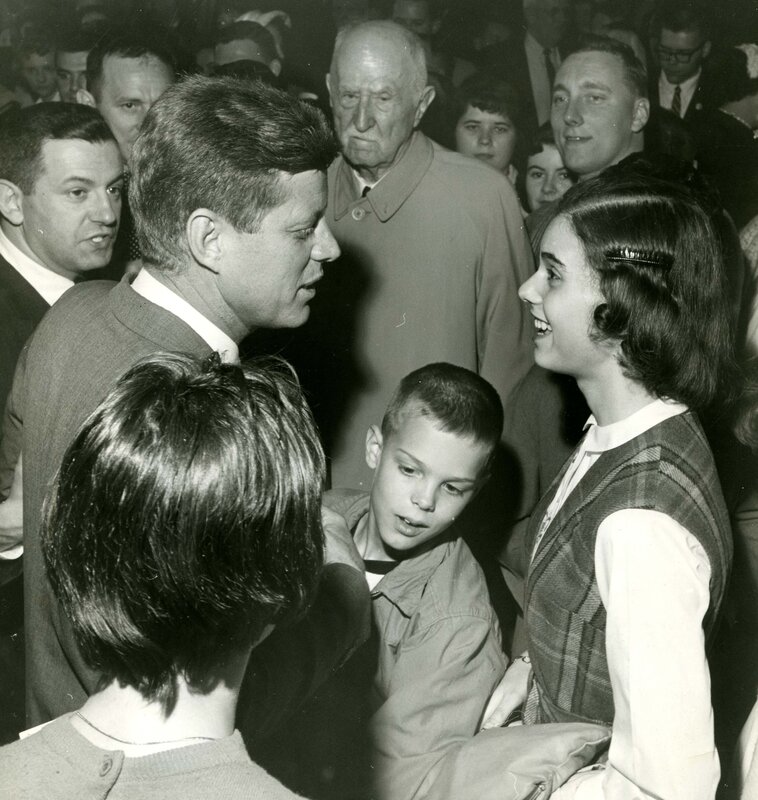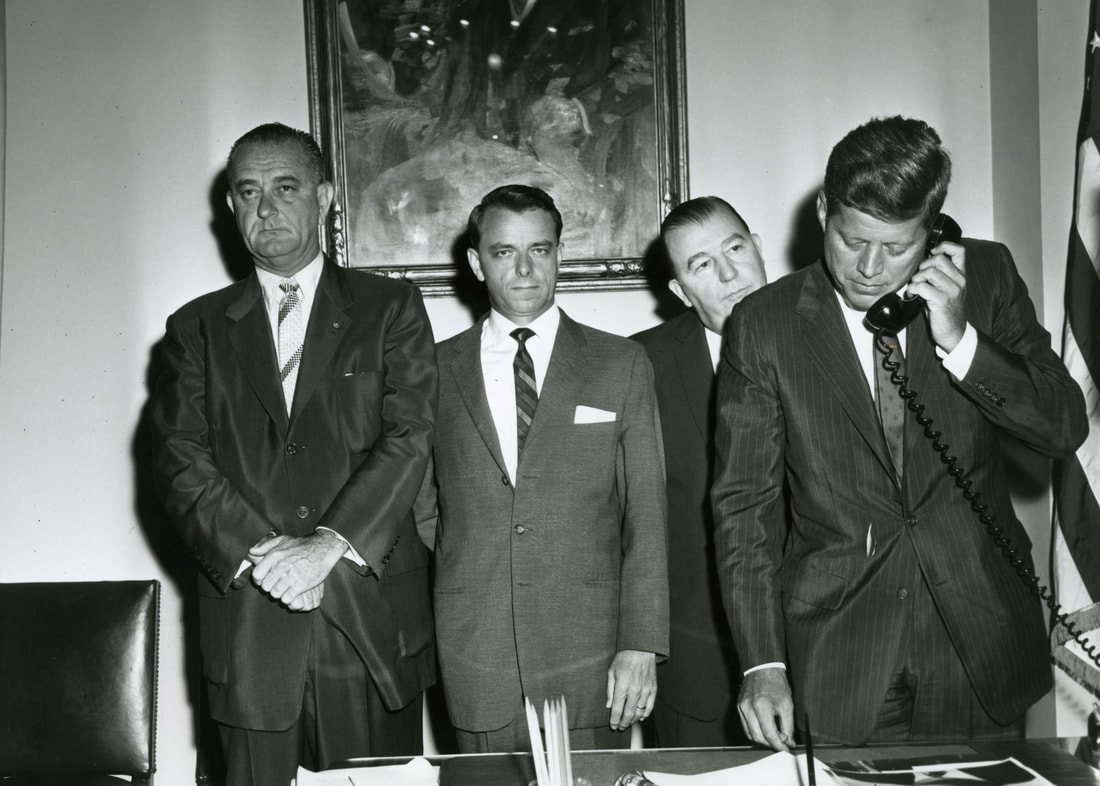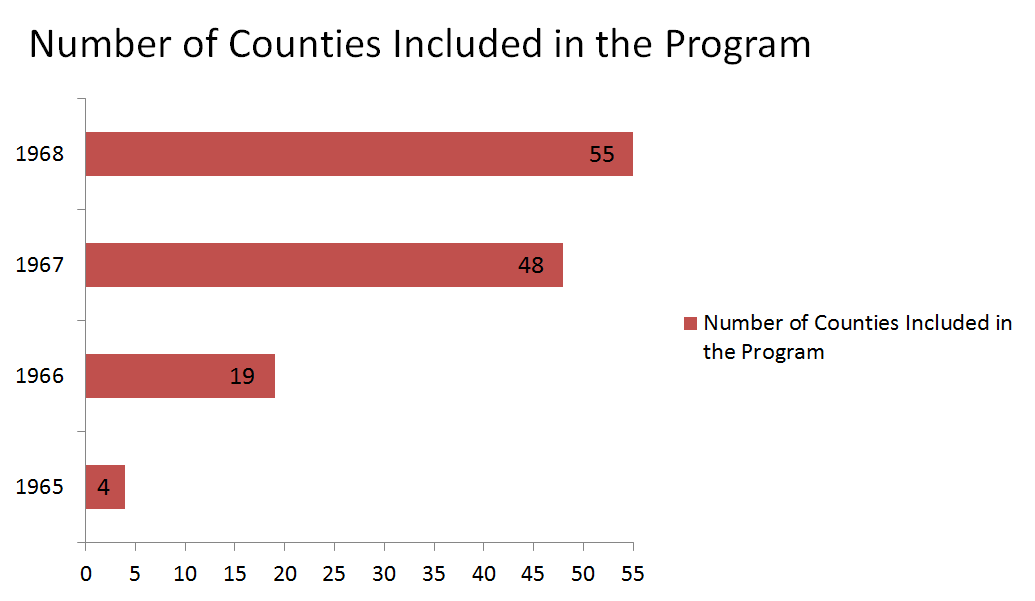After a decade of decline in the coal mining industry, the state's chief economic drive, many communities in West Virginia were in great need of federal assistance programs to support their citizens, many of whom had never fully recovered from the effects of the Great Depression. Senator Byrd’s maiden speech in the U.S. Senate, delivered on January 23, 1959, was a statement in support of legislation he and Senator Jennings Randolph were proposing to increase funding which the Department of Agriculture used to supply emergency food provisions in the United States. “I hope that other senators will join in cosponsoring this legislation. It is a humanitarian piece of legislation, written in the interest of thousands of our fine citizens who, through no fault of their own, have become unemployed, and are now living in penury, privation, and want.” This bill was one of several pieces of legislation the newly-sworn senators supported to provide much-needed aid to West Virginians. The existence of great need among many West Virginia families was clearly witnessed by Senators Randolph and Byrd, and more senators who, at their invitation, toured parts of the state and held community hearings in the spring of 1959. A year later, the need for expanding aid programs became a talking point for candidates in the upcoming presidential election. While campaigning in West Virginia in 1960, then Senator John F. Kennedy promised that if elected he would take steps to create a federal program for food assistance. On February 2, 1961, President Kennedy made good on this promise when he signed his first executive order, creating a pilot program to expand food distribution. The first region to be incorporated in the new pilot program was West Virginia's southern coalfields, with the first official sale to the Muncy’s taking place in McDowell County. Over the next three years, President Kennedy’s test program was expanded to eight regions encompassing forty counties in twenty-two states and major cities such as Detroit, St. Louis, and Pittsburgh. With the success of the pilot food assistance program, President Lyndon Johnson challenged Congress to make the program permanent through legislation in early 1964. Congresswoman Leonor Sullivan of Missouri introduced a bill which passed and was signed into law on August 31, 1964. Since the original bill only provided funding for three years, a debate ignited early in 90th Congress to determine ongoing funding levels for the program. A bill introduced by Senator Byrd extended the Food Stamp program for three years and appropriated $600 million to be allotted for the three-year reauthorization. During the three years following the passage of the 1964 Food Stamp bill, Senator Byrd made it his goal to expand the program's coverage to all West Virginians. Residents of four of the state's counties (McDowell, Logan, Mingo, and Wayne) were able to apply for assistance through the original pilot program. Senators Byrd and Randolph worked with state officials and the program's leaders in the Department of Agriculture to make more counties eligible for coverage. By late 1967, forty-eight counties were included and Senator Byrd wrote to the Secretary of Agriculture asking that the remaining seven counties be added so that their residents could be eligible for assistance. In 1968, Food Stamp coverage was finally extended to all fifty-five counties of the state, making it the first to be completely included in the program. Since the 1960s, the Food Stamp program has undergone several reauthorizations and alterations. In the 1970s, bills in 1974 and 1977 greatly expanded the program and simplified elements of its administration and eligibility requirements. While efforts to stem the growing costs of the program led to reductions in Food Stamp funding in the early-1980s, the program was expanded again in the late-80s in the face of growing hunger among people living near or below the poverty line. Many changes to the Food Stamp program as well as adjustments to its funding are passed under the Farm Bill, a major appropriations bill passed every four to five years to fund various aid programs administered by the Department of Agriculture.
Throughout his career, Senator Byrd remained a strong supporter of the Food Stamp program, once saying “I cannot speak too highly of the Food Stamp Program and what it has meant to many West Virginians and other Americans in need of food assistance. The need to eliminate hunger and severe malnutrition is clear and consistent with the national interest and our standard of value.” Comments are closed.
|
Welcome to the Byrd Center Blog! We share content here including research from our archival collections, articles from our director, and information on upcoming events.
Categories
All
Archives
July 2023
|
Our Mission: |
The Byrd Center advances representative democracy by promoting a better understanding of the United States Congress and the Constitution through programs and research that engage citizens.
|
Copyright © Robert C. Byrd Center for Congressional History and Education
|




 RSS Feed
RSS Feed
